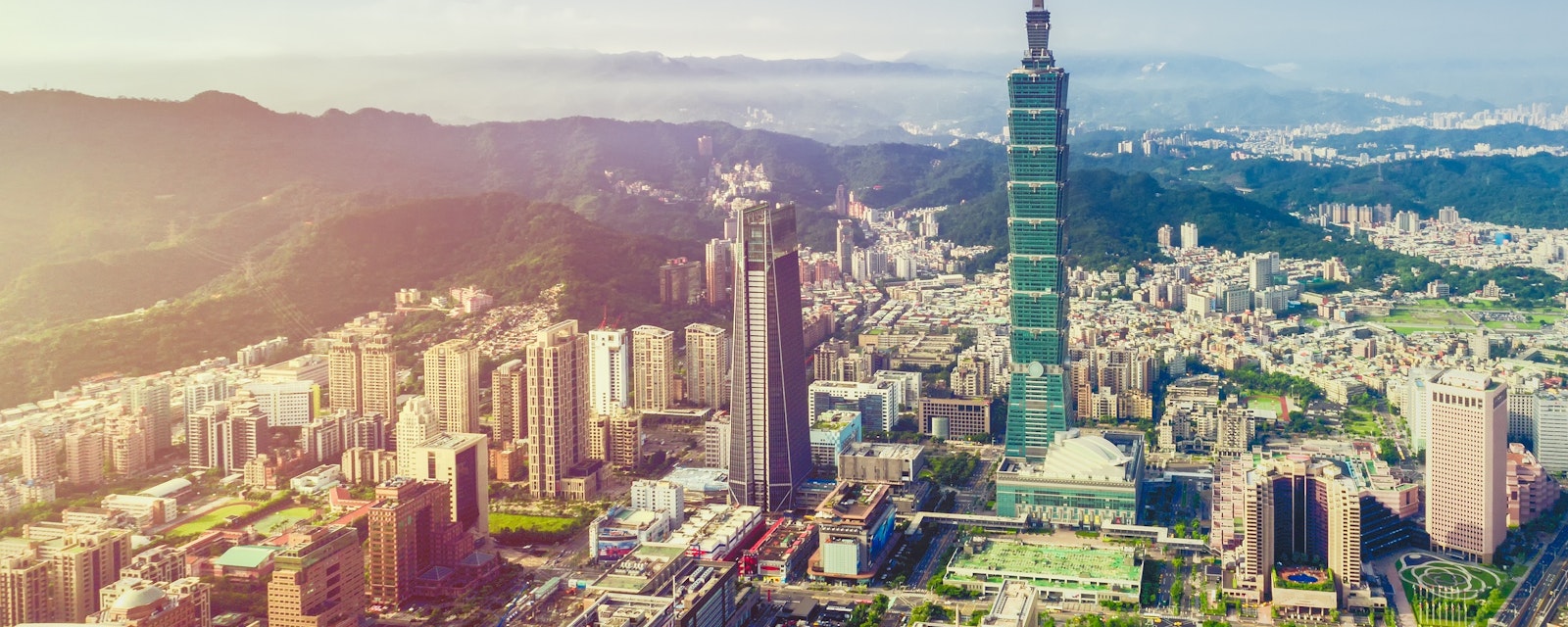Taiwan will raise its nationwide virus alert to Level 3 on a four-tier scale, following 1,226 Covid-19 infections since 15 May – almost half of total cases since the epidemic began last year. Taiwan's relative success at controlling the virus until now could become a liability if the current outbreak worsens, given the lack of testing capacity and vaccine supplies. So far there is no sign of a disruption of semiconductor manufacturing, and Taiwan Semiconductor Manufacturing Company (TSMC) is reducing in-person meetings and contact with non essential vendors.
The outbreak began on 15 May when the health ministry confirmed 180 domestic cases, followed by 206, 333, 240, and 267 on subsequent days. The alert marks the first time since the start of the pandemic that the government has imposed Level 3 restrictions on the entire country. Taiwan has been among the most successful regions at suppressing the virus, with recent cases accounting for nearly half of the 2,533 total since the epidemic began. The current outbreak appears to have started in hostess bars in Taipei's Wanhua, but the outbreak also mirrors similar recent flare-ups in Southeast Asia, including Singapore, Thailand, and Malaysia.
The health ministry declared Level 3 on 15 May only for Taipei and New Taipei, but after new cases appeared in more than half of the island's counties, the alert was extended to the entire country effective 20 May. Under Level 3, masks are required everywhere outside the home. Indoor gatherings are limited to five people, and outdoor gatherings are capped at ten. Sports, entertainment, recreation, and other public venues are closed, as are schools, but shops and restaurants remain open with increased social distancing and customer registration requirements. Level 4, a full lockdown, would be triggered by 14 consecutive days of over 100 cases, if at least half are of unknown origin.
Success Creates Vulnerability
Taiwan's relative success at controlling the virus until now could become a liability if the current outbreak worsens. Because cases were persistently low, the government never established the infrastructure for mass testing. In recent days, authorities have set up testing stations in Taipei's Wanhua district where the outbreak is centered, but there are reports that these stations have hit capacity and turned people away.
Similarly, the government has not been highly aggressive at securing vaccines for its population of 23.4mn. Taiwan has inked contracts to purchase around 20mn vaccines, including 10mn from AstraZeneca and 5.05mn from Moderna, but most have not arrived. Through 18 May, Taiwan had received 117,000 vaccine doses purchased directly from AstraZeneca and an additional 199,200 AstraZeneca doses through COVAX, most of which have already been administered. Health Minister Chen Shih-chung said on 19 May that a further 400,000 AstraZeneca doses from COVAX are in transit from Europe. Some Moderna doses ordered previously are expected to arrive in early June.
In February, Chen hinted that the mainland government had interfered to block a deal for Taiwan to acquire BioNTech vaccines via Fosun Pharma. Fosun, a privately-owned company based in Shanghai, signed a deal with BioNTech in March 2020 granting Fosun exclusive distribution rights for Greater China, including Hong Kong, Macao, and Taiwan. But Chen later appeared to back off the interference claim after he bypassed Fosun to negotiate directly with BioNTech. Chen said in late March that global supply shortages made BioNTech unable to deliver vaccines in an acceptable timeframe and that he was focused on other suppliers.
Taiwan may receive additional vaccine supplies from the US. President Joe Biden pledged on 17 May that Washington would send 20mn Pfizer, Moderna, and Johnson & Johnson doses abroad by the end of June, following a pledge in late
April to provide 60mn AstraZeneca doses on an unspecified timeline. Though the White House has not named specific countries, Taiwan appears well positioned, given strong bipartisan support in Washington for stronger relations with the island.
No Sign of Manufacturing Disruption – Yet
A key concern is whether the current outbreak will disrupt production of semiconductors by TSMC and other Taiwanese chip fabricators. So far there is no sign of disruption, and both TSMC and the government would likely take extreme measures to prevent one. A production halt, or even a slowdown, would cause significant damage to TSMC and the broader Taiwanese economy, given the extraordinarily high fixed costs inherent to semiconductor fabrication. TSMC said on 17 May that the company has reduced in-person meetings, workers are operating in divided teams, and non-essential vendors are banned from company facilities.
The National Development Council said on 18 May that the outbreak would shave only 0.16 percentage points off GDP this year if it ends by 30 June and only affects domestic consumption. If the outbreak extends into the third quarter, the impact could be 0.53 percentage points. The government's latest forecast is for GDP growth of 4.6% this year.
Just days into the outbreak, the political impact remains unclear. President Tsai Ing-wen’s approval rating was a robust 59.2% in a February poll, despite criticism from the opposition Nationalist Party (KMT) over the Tsai administration's controversial decision to lift a ban on imports of US pork. Tsai and her Democratic Progressive Party (DPP) have earned public support with their strong anti-mainland message, but a prolonged lockdown could threaten their popularity.




